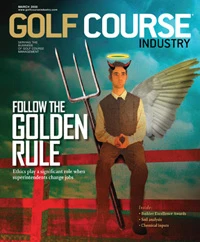Politics are annoying. There’s too much bickering, pandering and hot air to withstand for any length of time. Politics also can be entertaining, much like watching a sporting event. You cheer and root for the person you want to win as he or she delivers snappy rebuttals during televised debates. Politics might be annoying and entertaining, but they’re also important because they impact people’s lives and how businesses operate.
Politics have been dominating the news lately because it’s primary season. The media analyze each and every word of the candidates like they actually mean something. They like to predict winners, too. Despite the media buzz, I often ask, “What are the details?” and “Where’s the substance?” as politicians drone on about changing the country by implementing their new policies. Campaign speeches are examples of the familiar saying, “all sizzle and no steak.”
Many politicians – not all (it seems the good politicians rarely last on the scene and understandably leave to enter the private sector) – are power hungry and egocentric. They claim to want to help citizens and better the country, but it’s difficult to believe them most of the time because they don’t seem genuine. Come to think of it, politicians are the antithesis of golf course superintendents – something of which you should be proud.
So, being an election year, we’ll soon vote for the 44th president of the United States. For most informed, logical voters, it comes down to two candidates – the Democratic party nominee and the Republican party nominee – even though there are more than two choices. For many, no candidate is ideal, and they vote for who’s considered to be the lesser of two evils.
In the context of these political musings, think about the golf industry and its use of people, pesticides, fertilizers, water and land and juxtapose that with legislation the Democratic and Republican parties have sponsored and passed into law. Democrats tend to promote expanding the federal government and implementing tax-burdening philosophies, and Republicans tend to promote shrinking the federal government and futhering pro-business policies. It’s clear which party’s policies, in general, benefit the golf industry more.
During the next seven months, we’re going to see shifts in the political landscape from our TVs, newspapers and computers. Voters are going to form more educated opinions about the candidates. Recently, I’ve talked to some in the industry who already are preparing and planning for what they view as the worst – a Democratic president who won’t be kind to the business interests of the golf industry – with chemical/fertilizer and environmental regulations being the two biggies. Taxes, economic policies and immigration are a few other issues that come to mind. Granted, Republican-driven immigration reform might be more damaging to certain golf course businesses than a Democratic-driven one, but I think we all can agree law and order is much needed in that area.
Those in the golf industry who intend to vote for the Democratic party’s nominee for president should ponder two questions: “Why is a Democratic president better than a Republican one when it comes to environmental policies that impact the golf business?” and “Why vote for the same candidate environmental activists vote for?” Like I said, neither realistic candidate is going to be ideal for many voters, but it’s quite clear who the lesser of two evils will be for the golf industry. GCI

Explore the March 2008 Issue
Check out more from this issue and find your next story to read.
Latest from Golf Course Industry
- From the publisher’s pen: Conscientious of a bigger role
- Bernhard and Company partners with Laguna Golf Phuket
- Terre Blanche showcases environmental stewardship
- VIDEO: Introducing our December issue
- Bernhard and Company introduces Soil Scout
- Nu-Pipe donates to GCSAA Foundation’s Centennial Campaign
- GCSAA enhances golf course BMP tool
- Melrose leadership programs sending 18 to 2026 GCSAA Conference and Trade Show





